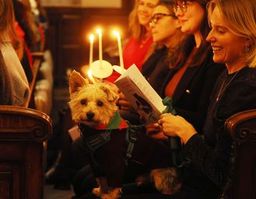From the federal government’s historic and hotly debated decision to invoke the Emergencies Act to Russia’s war on Ukraine and the economic angst that followed, a lot happened in 2022 — so much that it can be hard to keep track. But how many headlines do you remember from the past 12 months?
Host Catherine Cullen quizzes our panel of journalists on some of the biggest political headlines of the year, with a series of questions prepared by quizmaster Emma Godmere. Test your political smarts by following along with 20 of the trickiest questions below and compare your answers at the bottom of the quiz.
CBC News: The House47:51Test your knowledge with The House’s 2022 news quiz
It was a busy year in Canadian politics — but how much of it do you actually remember? Listen along and test your political smarts as host Catherine Cullen quizzes three political journalists on some of the most important political twists and turns of 2022.
Conservative turmoil
1. Back in January, a report evaluating the Conservative Party’s performance in the 2021 election suggested then-leader Erin O’Toole was “over-managed” by senior staff and didn’t connect well enough with voters. Which former MP compiled this report?
2. On February 2, turmoil within the Conservative Party came to a head when MPs voted to replace party leader Erin O’Toole. Name the parliamentary act that allows this to happen.
3. Pierre Poilievre was the first candidate to formally announce he would be running to become the next Conservative leader. How many days after Erin O’Toole’s ouster did Poilievre enter the race?
4. In February, a Liberal MP said he was uncomfortable with his government’s COVID-19 policies. “I think it’s time to stop dividing Canadians, to stop pitting one part of the population against another,” the MP said. Which Liberal MP made these remarks?
Convoy protests
5. The convoy protests arrived in Ottawa the last weekend of January. But on which date was the Emergencies Act invoked?
6. For how many days was the Emergencies Act invoked?
7. The House of Commons voted to confirm the use of the Emergencies Act 181 to 151, with MPs largely divided across party lines. The NDP sided with the Liberals and voted in favour of the use of the act, while the Conservatives and the Bloc Quebecois voted against its use. One party was split: the Greens. Which Green MP voted in favour of the use of the Emergencies Act and which voted against?
Liberal-NDP deal
8. Some major news broke in March: the Liberals and the NDP struck a confidence-and-supply agreement to keep the minority government in power until 2025. While some initial discussions unfolded after the last election, talks picked up again in early 2022 between the two party leaders. What event prompted the restart of those talks?
9. Dental care was a big piece of the Liberal-NDP deal. But what other major NDP priority is baked into the agreement, and what’s the deadline for its implementation?
10. While the federal government would go on to lift more COVID travel measures later in the year, they dropped one specific cross-border travel requirement in April. What was it?
Military spending
11. In its spring budget, the federal government laid out plans to increase defence spending by $8 billion over five years. What percentage of Canada’s GDP would that amount to?
12. The fact that Canada does not meet NATO’s benchmark for defence spending drew more attention following Russia’s invasion of Ukraine. In what month did Prime Minister Justin Trudeau make a surprise visit to Ukraine?
13. In the wake of Russia’s attack on Ukraine, Arctic sovereignty and security became a major topic of discussion. In June, Canada signed a deal with a foreign country to establish a new land border on an uninhabited island in the Arctic. Which country?
14. What is the name of that island?
New taxes, rising interest rates
15. A new federal “luxury tax” came into effect in September. First introduced in the 2021 budget, the tax is applied to cars and private aircraft with sale prices over a certain amount. What is that amount?
16. How many times did the Bank of Canada raise interest rates this year?
17. Canada’s inflation rate reached a 39-year high this year. What was that peak rate?
Poilievre’s big win
18. When Pierre Poilievre was elected Conservative leader in September, he won nearly every riding in the country. Poilievre lost just eight ridings to his main opponent, Jean Charest. Name the two ridings outside Quebec that Poilievre lost to Charest.
19. Statistics Canada released new data on the makeup of Canada’s population in October. What percentage of the population is now made up of immigrants and permanent residents?
20. The prime minister appointed six new senators this year. Name one of them.
Here are the answers:
1. James Cumming
2. Reform Act
3. Three days
4. Joël Lightbound
5. February 14
6. 10 days
7. Elizabeth May voted in favour, Mike Morrice voted against
8. The birth of Jagmeet Singh’s daughter — Justin Trudeau was calling to congratulate
9. Pharmacare — to pass a Canada Pharmacare Act by the end of 2023
10. Pre-arrival COVID testing for fully vaccinated travellers
11. A projected 1.5 per cent of GDP
12. May
13. Denmark
14. Hans Island
15. $100,000 for cars and private aircraft and $250,000 for vessels for personal use
16. Seven times
17. 8.1 per cent
18. Ottawa Centre and University-Rosedale
19. 23 per cent
20. Any one of the following is correct: Dr. Sharon Burey, Andrew Cardozo, Rear-Admiral Rebecca Patterson, Margo Greenwood, Dr. Gigi Osler, or Ian Shugart








